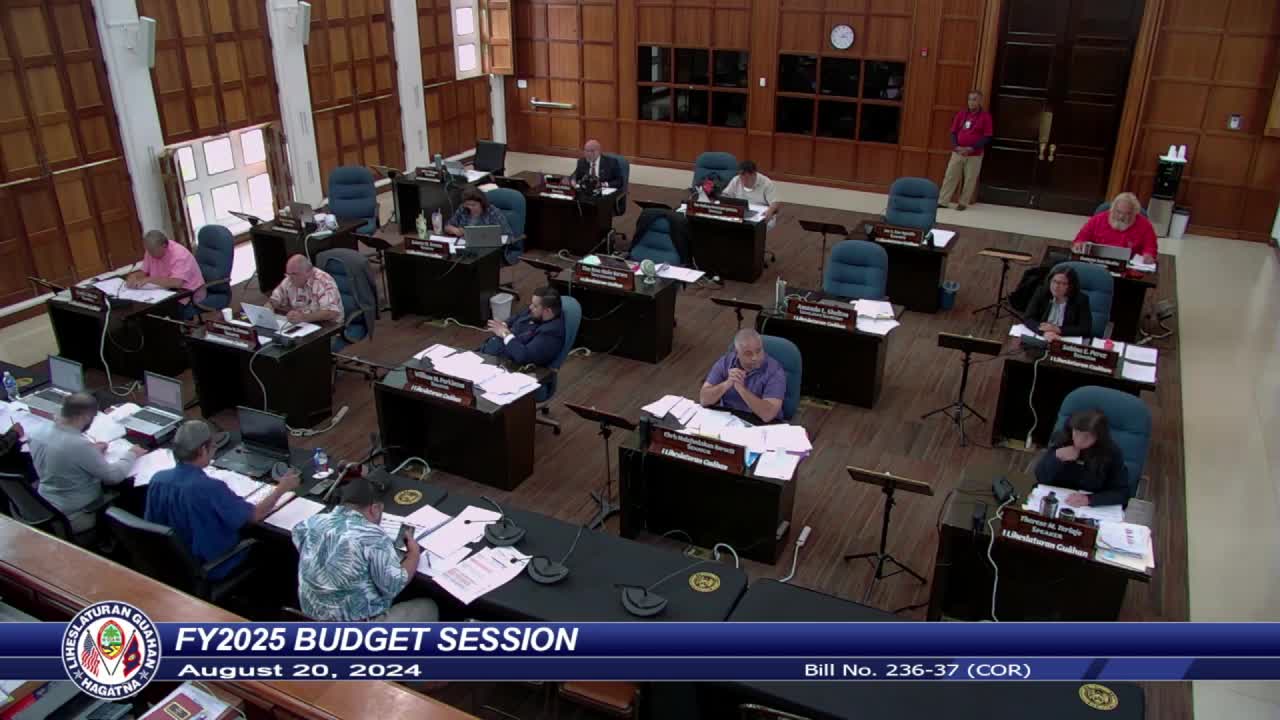Lawmakers face backlash over funding cuts for disabled services
August 20, 2024 | General Government Operations and Appropriations , Legislative, Guam
This article was created by AI summarizing key points discussed. AI makes mistakes, so for full details and context, please refer to the video of the full meeting. Please report any errors so we can fix them. Report an error »

During a recent government meeting, significant concerns were raised regarding the allocation of funds for vulnerable populations, particularly individuals with disabilities. Senator Perris expressed frustration over the current budget, highlighting a perceived failure to meet the essential caregiving needs of constituents. He criticized the budget produced by the Office of Finance and Budget (OFB), pointing out substantial gaps in healthcare funding and questioning the decision-making process behind it.
Senator Perris emphasized that the budget does not even cover the minimal requirements for those in need, suggesting that the government is accepting disparities within society. He argued that funding appears to favor those with influence, leaving the most vulnerable without necessary support. \"We have money, but we're not going to give you,\" he stated, calling into question the moral compass of the government in addressing these critical issues.
Senator Burnett echoed these sentiments, expressing frustration over the lack of funding for essential services such as job coaching for individuals with disabilities. He criticized the tendency for political opposition to overshadow the needs of the community, suggesting that decisions are often made based on personal agendas rather than the welfare of constituents. Burnett urged his colleagues to focus on the needs of the people rather than engage in political gamesmanship.
In response, Senator Fisher acknowledged the disagreements among colleagues but attributed them to honest differences rather than political motivations. He called for a more constructive dialogue focused on the needs of the community.
The discussions reflect a growing concern among lawmakers about the adequacy of funding for critical services and the impact of political dynamics on decision-making processes. As the meeting concluded, the urgency to address the needs of the most vulnerable populations remained a central theme, highlighting the ongoing challenges faced by the government in fulfilling its commitments to its constituents.
Senator Perris emphasized that the budget does not even cover the minimal requirements for those in need, suggesting that the government is accepting disparities within society. He argued that funding appears to favor those with influence, leaving the most vulnerable without necessary support. \"We have money, but we're not going to give you,\" he stated, calling into question the moral compass of the government in addressing these critical issues.
Senator Burnett echoed these sentiments, expressing frustration over the lack of funding for essential services such as job coaching for individuals with disabilities. He criticized the tendency for political opposition to overshadow the needs of the community, suggesting that decisions are often made based on personal agendas rather than the welfare of constituents. Burnett urged his colleagues to focus on the needs of the people rather than engage in political gamesmanship.
In response, Senator Fisher acknowledged the disagreements among colleagues but attributed them to honest differences rather than political motivations. He called for a more constructive dialogue focused on the needs of the community.
The discussions reflect a growing concern among lawmakers about the adequacy of funding for critical services and the impact of political dynamics on decision-making processes. As the meeting concluded, the urgency to address the needs of the most vulnerable populations remained a central theme, highlighting the ongoing challenges faced by the government in fulfilling its commitments to its constituents.
View full meeting
This article is based on a recent meeting—watch the full video and explore the complete transcript for deeper insights into the discussion.
View full meeting